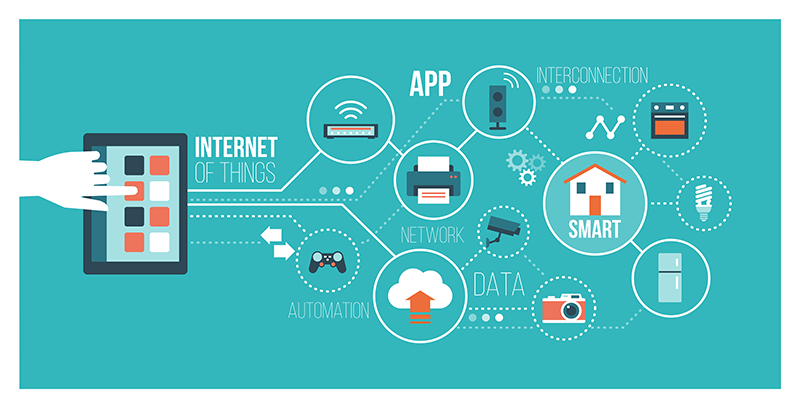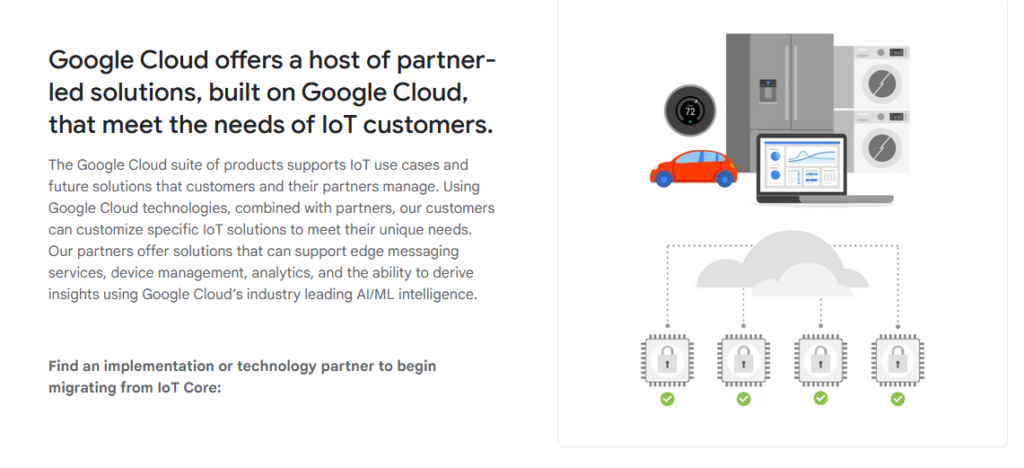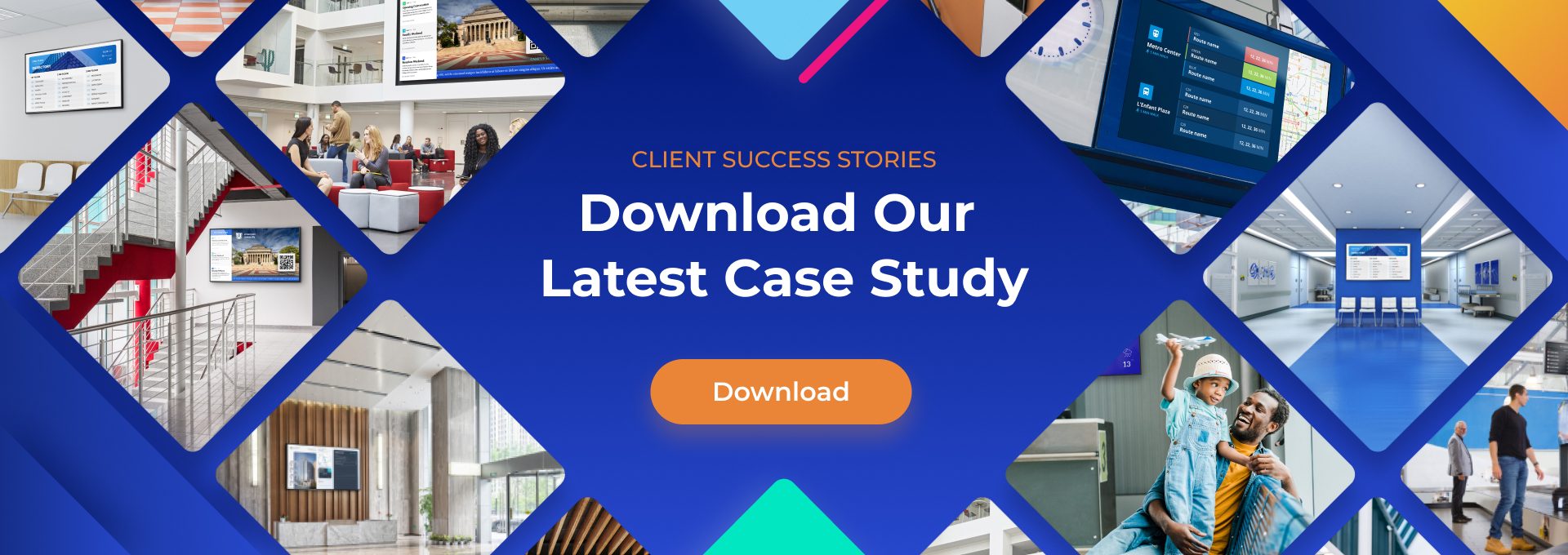The Best IoT Platforms of 2024

Cloud computing has slowly gained popularity, empowering numerous tech segments and big corporations. Internet of Things platforms and cloud services have shown the potential of IoT devices and opened new opportunities for both companies and consumers.
The technology used to manage and automate IoT devices is an IoT platform. In simple terms, an IoT platform is a service that brings all physical devices online. It acts as a mediator between the hardware and the application layer.
In 2019, the global IoT platform market stood at USD 2.26 billion. However, it’s expected to hit 13.310 billion by 2026.
There are currently numerous IoT platform providers in the market, and each platform has significance in making IoT management and integration scalable and more effortless.
Given this information, the onus is on businesses and consumers to find the most appropriate IoT solutions for their specific needs. Here is a look at some best IoT platforms of 2022.
1. Google Cloud IoT

Google established its IoT platform based on its end-to-end Google Cloud Platform. This is one of the world’s popular internet of things platforms. It consists of various services that add value to connected devices. Its main features are:
- Cloud IoT Core helps you capture and manage device data. Devices connect to the service through a device manager component. Additionally, this manager also monitors and configures IoT devices. HTTP and MQTT are used for device communication and connection with Google’s Platform.
- Cloud Pub deals with data ingestion and message routing
- Google Big Query helps with secure real-time analytics
- AI Platform has machine learning features
- Google Data Studio interprets data in the form of reports and dashboards
- Google Maps Platform identifies the location of connected assets
Google’s IoT platform supports IoT hardware producers such as Microchip and Intel. Furthermore, you can use it with various operating systems, including Debian Linux OS. The core use cases for this platform include real-time asset tracking, predictive maintenance, logistics and supply chain management, and smart cities and buildings.
2. Cisco IoT Cloud Connect
Studies show that by 2025, there will be over 30.9B IoT devices. This statistic is probably one of the reasons platforms like Cisco IoT Cloud Connect continue to improve their solutions for mobile operators. Cisco IoT Cloud Connect is a mobility cloud-based software suite for individual and industrial use cases. Therefore, you can use this software suite for your mobile phone digital signage applications. In addition, this brand provides quality IoT hardware like access points, switches, routers, and gateways.
Some prominent features of this platform are:
- Cisco IoT Control Center enables you to integrate your IoT devices in one SaaS solution.
- Extended Enterprise Solution enables IoT development and promotes centralized network management and rapid deployment.
- Edge Intelligence simplifies the visualization of IoT data by sending data to local or multi-cloud environments.
- Industrial Asset Vision monitors assets continuously and helps you collect data for improved decision-making.
- Cisco IoT Threat Defense protects data and devices from cyberattacks through segmentation, secure remote access, analysis, and visibility.
The core use cases for this platform include fleet management, connected cars, payment, POS solutions, industrial networking, predictive maintenance, home security and automation, healthcare, and smart meters.
3. Salesforce IoT Cloud
Salesforce deals with customer relations management. The platform uses information from its connected devices to provide personalized experiences to your customers. Additionally, the Salesforce IoT Cloud platform works in tandem with the Salesforce CRM. Data from connected devices go to the CRM system.
For example, if sensors detect a flaw in windmill performance, this data reflects in the CRM dashboard. As a result, the system updates the parameters automatically or produces a service ticket.
Some prominent features of this platform include:
- Support for multi-tasks. The system fully integrates products, customers, and CRM.
- A user-friendly platform means end-users don’t need programming skills to create conditions, events, or rules. The platform has a point-and-click UI for easy device management. Furthermore, the platform has a proactive approach to customer needs and issues.
- Flexibility means the platform is compatible with third-party websites, products, services, and a variety of IoT applications. You can even use this platform to develop effective digital signage solutions.
The core uses of the platform include financial services, government administration, marketing and advertising, machinery, and chemicals. Ultimately, the Salesforce IoT Cloud guarantees your business an in-depth view of customer data, increased sales, and improved customer experience.
4. IRI Voracity
The IRI Voracity platform is fast for data discovery, integration, and analytics. Furthermore, it is a popular IoT ecosystem platform for its power to transform and analyze a device’s data streaming using MQTT or Kafka.
Some features of IRI Voracity are:
- A Data Governance Portal enables data to be sought and classified in silos. Additionally, the portal provides anonymization and encryption to adhere to data privacy regulations
- Faster ETL and Analytic Alternative, which conducts extraction and transformation of big data in a short time
- A DB Ops Environment which enables you to administer your databases from one place
- The core use cases of this IoS platform include data governance, ETL modernization, and analyzing big industrial IoT data.
Other popular IoT platforms include SAP’s Leonardo Platform, Oracle IoT, and ThingWorx. You should consider IBM Watson IoT, Microsoft Azure IoT, and Amazon AWS IoT core. Choosing the right IoT platforms helps businesses and consumers to optimize IoT technology fully. Most of these platforms allow you to create applications and connect them to devices with Android, IOS, and REST APIs.
5. Amazon Web Services IoT Platform
Amazon is a leader in the IoT market. It was the first platform to convert cloud computing into service in 2004. Since then, Amazon has put much effort into building various innovative features, with probably the most comprehensive tool set available. As a scalable platform, it supports billions of devices and trillions of interactions between devices.
Amazon bases its pricing on the messages received or sent by AWS IoT. Each IoT interaction is considered a message between a device and a server. The platform charges per million messages received or sent between endpoints. Additionally, it doesn’t charge minimum fees, and messages to the following AWS services are complimentary.
- Amazon S3
- AWS Lambda
- SQS
- DynamoDB
- SNS
- Kinesis
Moreover, the platform has an (SDK) software development kit to assist developers in building and running AWS applications. Amazon has the most comprehensive service among all IoT platform providers. However, it also tends to be more expensive than the rest.
6. IBM Watson IoT Platform

IBM Watson is PaaS-based development IBM platform. It provides internet of things services with simple apps accessible to beginners and more advanced users alike. IBM is one of the top IoT platforms and offers real-time data exchange, data sensors, secure communication, and weather data services.
Interestingly, the IoT platform can handle vast data quantities and provides improved customer service. Some of its most outstanding features are:
- A cloud-based dashboard that gives better control and view of the gateways of IoT.
- Supports the computation of data in a distributed network which ensures the network’s optimum use of resources.
- Allows free flow of data between cloud-based applications and connected devices.
- Provides updates in real-time.
7. Microsoft Azure IoT Suite
Microsoft Azure IoT Suite is an open-source cloud-based platform. As one of the top IoT platforms, people like its ability to bring local intelligence into IoT. The suite has virtual machines which offer a fully flexible and configurable environment for computing. An added advantage of virtual machines is that they resize depending on the workload.
To work in the Azure IoT suite, users must pass commands over Azure Power Shell to start and stop the servers and writing operations. Azure IoT suite doesn’t provide any management capabilities, but its features include:
- Supporting instant device registry to create a unique identity for each device
- A cloud-based dashboard that offers instant access to data coming from different devices and applications
- Allows analytics streaming in real-time, used to improve ability in decision-making
- Facilitates data analysis continuously for use in actionable insights
- Provides monitoring solutions remotely to keep track of applications and devices.
8. Bosch IoT Platform
Bosch is an IT Company based in Germany that recently launched its cloud internet of things services. It aims to compete with other platforms, such as Amazon. The platform’s primary focus is efficiency and security. Additionally, Bosch IoT platform is flexible and based on open-source standards of IoT.
The company’s CEO, Volkmar Denner, says they offer all ace cards from a single source for the connected world. “The IoT cloud completes the puzzle since it’s the final piece of our software expertise,” he says. Bosch is now a full-service provider for IoT connectivity with an aggressive pricing system where you pay depending on your usage.
Should You Buy Your IoT Platform?
Businesses are increasingly migrating to cloud infrastructure due to the flexibility it adds to business operations. For example, technical teams get free hosting for maintaining and managing software and hardware components.
However, don’t limit yourself to pricing when looking for the appropriate IoT platform providers. Other factors to include are: whether the platform is open-source, the developer tools it supports, the effectiveness of data management, scalability features, supported web services, and how the platform improves business processes. For startups, it may help to consult an IoT expert on the solution best suited for your business.



